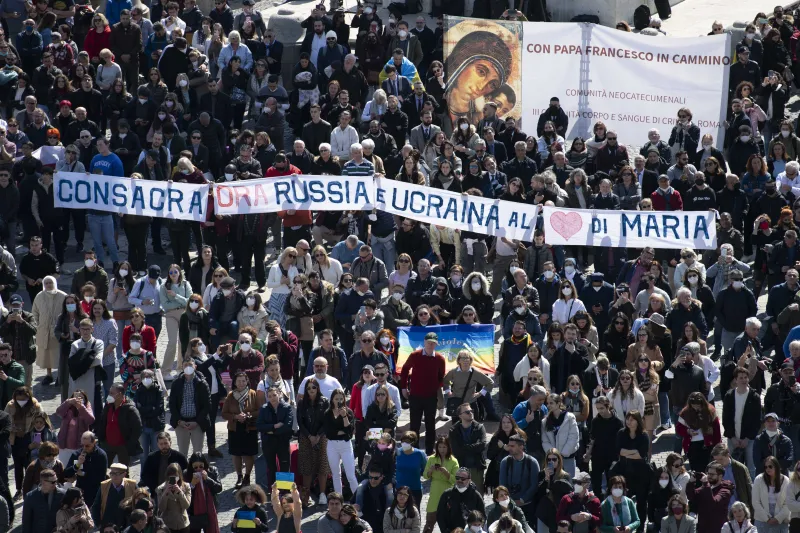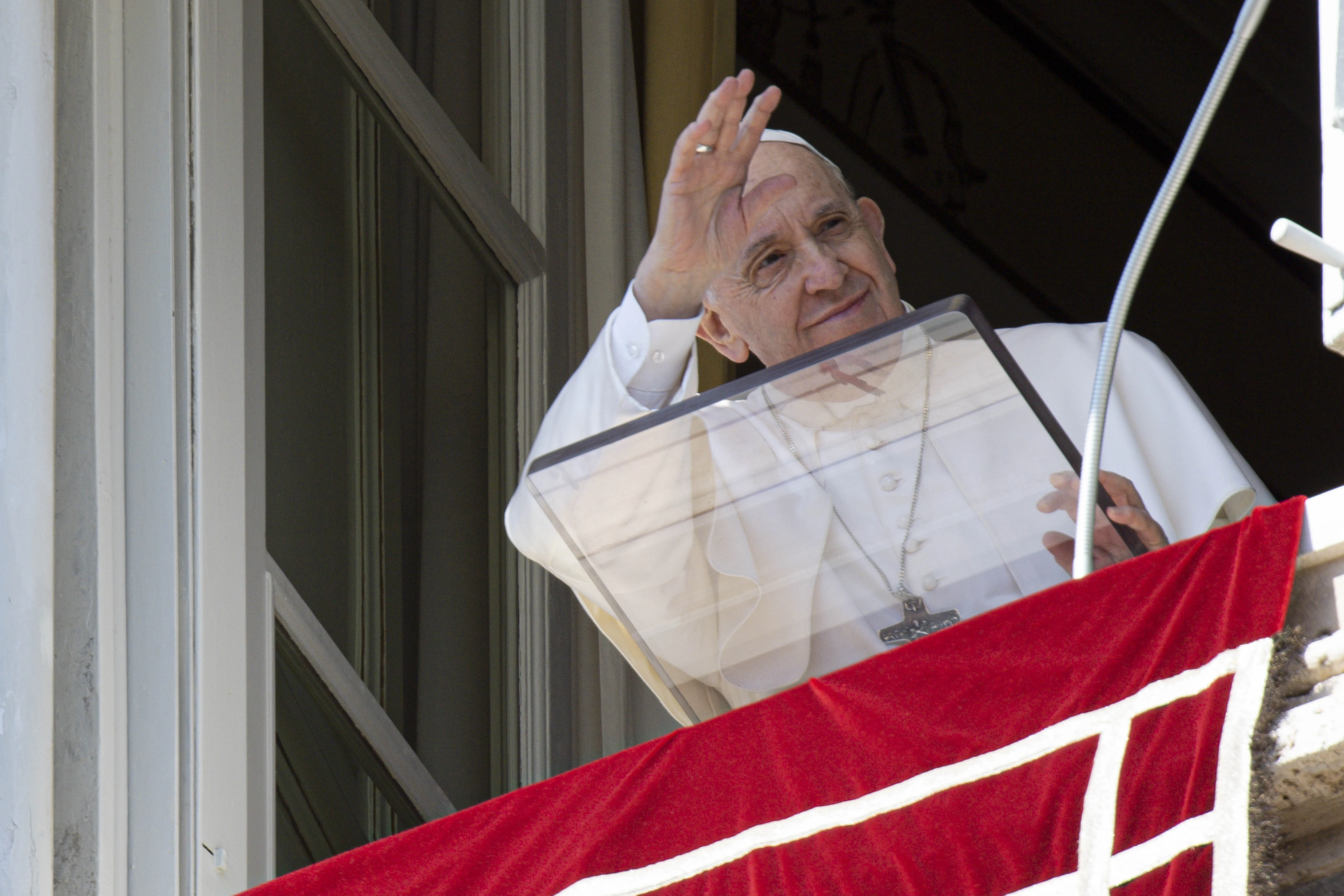
One of my favorite movie songs is a little filler number from White Christmas. Bing Crosby sings “What Can You Do With a General?” to describe the plight of his former commanding officer, who’s gone from two-star general to failing innkeeper. How does one address or treat one of such former stature? You can see the confusion on the faces of Bing and Danny Kaye when they’re presented with the image of General Waverly carrying firewood and taking out the trash.
The recent offer of resignation by the entire Chilean episcopacy has raised an even stronger version of this question: What do you do with a bishop when he no longer serves as a bishop? Even if not all of the resignations are accepted by the Holy Father, certainly some of them will be, and Chile may soon find itself searching for an answer?
The problem is a metaphysical one. Despite the jokes that “there’s no such thing as a ‘former Marine,’” when a military officer leaves the armed forces and returns to civilian life, he is no longer an officer (members of the reserves notwithstanding). He was an officer, but now he is a civilian. This is not so with clergy. When bishops, priests, and deacons are ordained, they are changed ontologically, at the very level of their being conformed to the character of Christ. They can never be “un-ordained”. A bishop is always a bishop. Thus, the Church has a profound responsibility toward those who have entered into Holy Orders.
What would become of those bishops whose resignations are accepted by the Holy Father? Most retired bishops live a quiet life consisting of things like hospital ministry, Confirmation Masses, and the odd round of golf or two, welcomed by the communities they visit as good and faithful servants.
But given the circumstances, none of these bishops will be regarded as the kindly former shepherd. They are not simply retiring after many years of service; they are resigning in disgrace. If past experience is any indicator, these bishops will almost certainly try to live quiet lives, either in small parishes in monastic communities, as were Archbishop John Nienstedt and Bishop Robert Finn. They might even be restricted from public ministry. We have already seen such cases with Cardinals Bernard Law and Keith O’Brien and Bishop Robert Finn.
(One has to wonder what the opinion is of those monastics who suddenly have a disgraced bishop in their midst. How do they regard him? Do they resent his presence? Do they take it as an additional penance for themselves? Does the bishop sit in choir in a place of honor as the liturgical rubrics specify, or does he try to avoid drawing attention to himself?)
It’s also possible that some could face a canonical trial (as some have argued they should), with the potential result of removal from the clerical state, or “laicization,” as it’s more commonly called. Again, this would not remove their ontological status as bishops, but it would mean they would be completely barred from celebrating the sacraments. They would no longer be allowed to serve as bishops or priests, even privately. Not only are clerics relieved of their obligations and privileges with respect to the Church, but the Church is also relieved of its obligations toward the now-former cleric. The Church is then no longer required to provide an income or other benefits for the individual, as they are completely severing all formal ties.
This procedure is more common with priests when they either request to leave the clerical state or are removed because of a serious canonical crime. But it is rare for bishops to be laicized. Bishops are successors to the apostles who participate fully in the priesthood of Jesus Christ. One does not simply wave them along and say, “Good luck!” Even in such situations where bishops have committed serious crimes, the Church prefers to keep them still within the fold (as we see with the above examples of monastic penance). Some have argued that such a solution is too lenient, giving too much comfort to those who have done wrong. Perhaps one might see this as the Church taking responsibility for those of its leaders who have done wrong, keeping an eye on them rather than washing their hands of them.
There have been some recent examples of bishops being laicized, though. After several warnings and pleas from the Holy See for him to be reconciled to the Church, Archbishop Emmanuel Milingo was removed from the clerical state in 2009 after he not only illicitly ordained several bishops, but also attempted to get married. And Bishop Fernando Lugo requested to leave the clerical state to run for office in Paraguay, and was officially dismissed when he was elected president of the country.
Yet in this situation it is possible that, in one stroke, rather than one or two former bishops, the nation of Chile may suddenly have 34 retired bishops, of various ages and capacities. Their fates could vary greatly. Some may retire to a monastery or remote parish. Some may choose to leave the country and seek a quiet life elsewhere. Some even face trial and lose the canonical state. It’s possible some may be understood to have resigned only in solidarity with their conference while not having committed any crimes themselves, and may be allowed by a future bishop to exercise some public ministry.
Given such an unusual circumstance, there’s no telling just what may happen. But the precedents set would be significant for any future scandals that may emerge (including some in neighboring countries).
If you value the news and views Catholic World Report provides, please consider donating to support our efforts. Your contribution will help us continue to make CWR available to all readers worldwide for free, without a subscription. Thank you for your generosity!
Click here for more information on donating to CWR. Click here to sign up for our newsletter.









Granted that this is a very complicated situation, however, this article has a lot of misinformation.
First, Cardinal Law was never subjected to any canonical penalty; indeed, he became archpriest of St Mary Major Basilica.
Second, Bishop Finn was not imposed on a community of nuns; they invited him to serve as their chaplain.
Third, a retired bishop is no different from a retired bishop. Similarly, a laicized bishop would be no different from a laicized priest.
Fourth, any laicized priest or bishop is no longer incardinated in his diocese or religious community; therefore, that entity no longer has any financial responsibility for him. If only his faculties are withdrawn, in most instances, he can still celebrate Holy Mass privately and, in extremis, can celebrate any other sacraments needed for the salvation of souls.
Father, I have followed the pastoral lives of both Cardinal Law and Cardinal Mahony. Pope Francis said recently that he would remove the criminals in the hierarchy. Pope John Paul II was responsible for whisking Law to the Vatican as archpriest shielding Law from a civil trial. One of many complaints that I have with the Catholic Church is trust. It is waning.
Dear Father, thank you for your comments. Regarding your points, some I could have made clearer, but some of those you raise I did mention. In order: 1) While he held the position of archpriest of the basilica in Rome, did Cardinal Law publicly celebrate the sacraments? If so, I take that correction. If not, I should have stated that point more clearly. 2) I understand that the community invited Bishop Finn, but my parenthesis was about a hypothetical individual in that community who may not have agreed with that decision. 3) Of course both laicized priest and bishop are no different in so far as they are laicized, but I was trying to get at why it is that the Church seems more hesitant to laicize bishops than it is to laicize priests, and I speculated as to why. 4) Indeed, and I said that “The Church is then no longer required to provide an income or other benefits for the individual, as they are completely severing all formal ties.” I did not discuss the possibility of one’s faculties being removed without laicization; perhaps I should have mentioned that as well. But I should have at least mentioned that even laicized clerics may still celebrate the sacraments of Penance and Anointing in emergency situations, as that would have been a clear example of how they are still ontologically priests even if they have been returned to the lay state.
What did Cardinal Law do that every other bishop did? Indeed, that every public school administrator, civil official, corporate executive did?
Hindsight is 20-20.
I have read two interpretations of the resignation of the Chilean bishops, one being that they did this in an effort to clear the deck due to the serious consequences of the sexual abuse scandal in Chile. The second interpretation is that they did it in order to force Francis’ hand given the fact that a large extent the present crisis regarding the appointment of Juan Barros as Bishop of Osoro, his triple offer to resign rejected by Francis and his remarks about the victims being “calumniators”. In fact the whole affair is easily understood as part of Francis disorderly style of governance, as he listened to his Spanish Jesuit confidant Germán Arana and not to the bishops who in a letter requested him not to appoint Barros. Not a few people think that the convoking of the whole of the Chilean Episcopate to Roma was unwarranted when those responsible for the were especially Cardinal Errázuriz, Emeritus Archbishop of Santiago as well as Francis himself. The whole thing would thus have been what is called in Spanish an effort by Francis to “wash his face”, or clean the “egg off his face”.
Resignation offers the resigned ones more time to intensify their prayer lives.